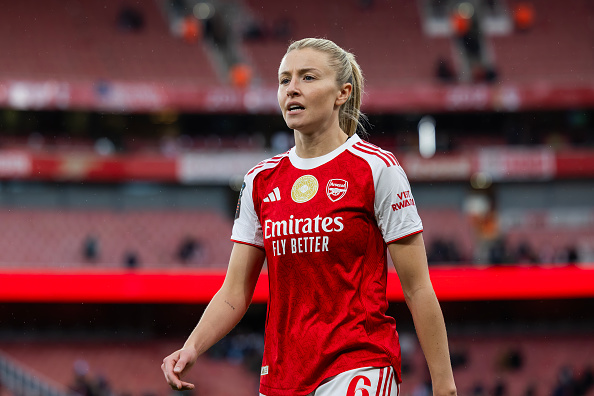All-time Premier League table: after 30 seasons, where YOUR club sits
Another season is over, so we've updated our all-time Premier League table to determine where all 50 teams rank since 1992/93
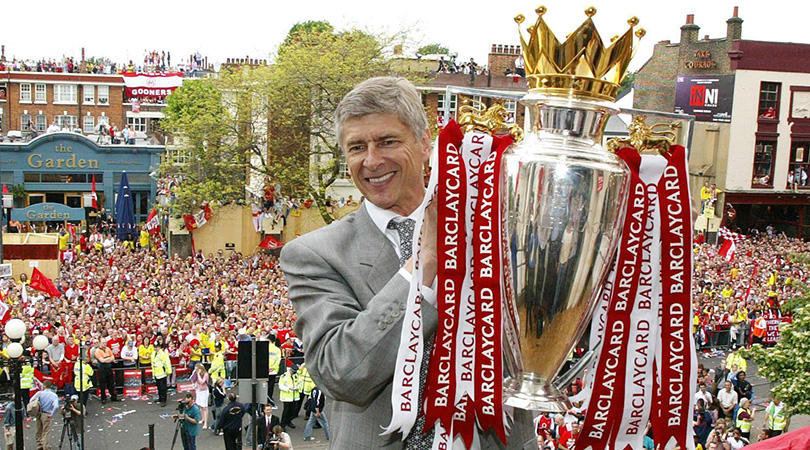
The best features, fun and footballing quizzes, straight to your inbox every week.
You are now subscribed
Your newsletter sign-up was successful
Want to add more newsletters?

Five times a week
FourFourTwo Daily
Fantastic football content straight to your inbox! From the latest transfer news, quizzes, videos, features and interviews with the biggest names in the game, plus lots more.

Once a week
...And it’s LIVE!
Sign up to our FREE live football newsletter, tracking all of the biggest games available to watch on the device of your choice. Never miss a kick-off!
Join the club
Get full access to premium articles, exclusive features and a growing list of member rewards.
Wondering where your club sits in the all-time Premier League table?
First up, we all understand that top-flight football existed before 1992/93. But the start of the Premier League did change things a bit. More cash, more foreign stars, a weirder trophy, far weirder kick-off times.
Secondly, we also get that every league season is its own, self-contained thing. The seasons of the Premier League don’t all add up to one big story arc, particularly as the division has now spanned 30 years.
Still, it’s fun to look back on which teams have been the successes, surprises and flops of the ‘Premier League era’. Where does your side rank?
All-time Premier League table: 50. Swindon
Points: 30 (from 42 games), Seasons: 1, Goal difference: -53
At least Swindon got to enjoy the goals of Jan Age Fjortoft (12 of them, complete with aeroplane celebration) in 1992/93. The minor drawback was conceding 100 league goals in one season. Did they actually play a goalkeeper?
The Robins might never get the chance to add to their 30-point haul in the Premier League – they’ve not even been in the second tier since 2000.
The best features, fun and footballing quizzes, straight to your inbox every week.
49. Barnsley
Points: 35 (from 38 games), Seasons: 1, Goal difference: -45
At least Barnsley gave it a go in 1997/98 – particularly Neil Redfearn, who scored 10 goals from midfield – but the team shipped 82 goals, which isn’t ideal. Redfearn enjoyed the process so much he got relegated with a further 127 clubs [citation needed].
Barnsley are another side who could remain one-season wonders. They survived on the final day of the Championship season in 2019/20 but haven’t finished in the top 12 of the second tier since 1999/00.
48. Blackpool
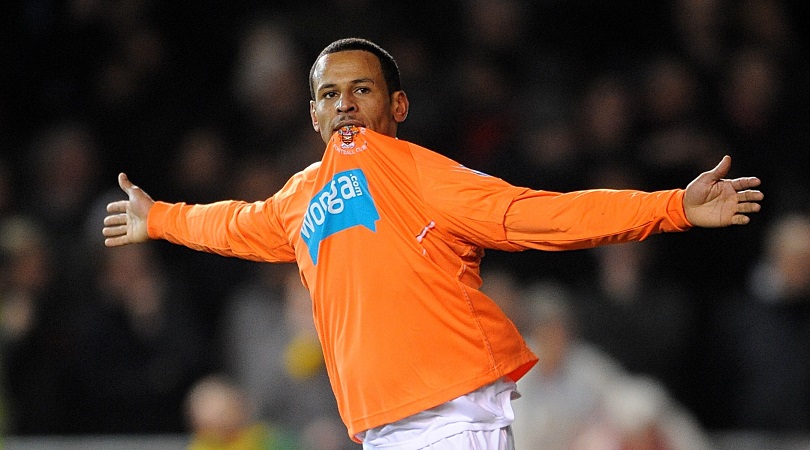
Points: 39 (from 38 games), Seasons: 1, Goal difference: -23
Blackpool only lasted one season in the Premier League, but they can consider themselves a tad unlucky. The 39 points that Ian Holloway’s side earned in 2010/11 would have kept them up in every single season since.
They were entertaining too, adopting a you-score-three-and-we’ll-try-but-probably-fail-to-score-four approach in Holloway’s only full season as a Premier League manager.
47. Brentford
Points: 46 (from 38 games), Seasons: 1, Goal difference: -8
Brentford’s first Premier League campaign was a resounding success, with Thomas Frank leading the Bees to a comfortable mid-table finish, playing some nice football along the way.
That already ensures that they won’t be among the one-season wonders on this list, with a place in the 2022/23 season safely secured.
46. Huddersfield
Points: 53 (from 76 games), Seasons: 2, Goal difference: -84
Huddersfield survived against the odds in their Premier League debut in 2017/18, finishing four points above the dreaded dotted line and forcing Paul Merson to appear on live TV dressed as Gonzo from The Muppets.
The Terriers were dismal the following year, though, collecting just 16 points to seal a return to the Championship and deny them the real prize of a place in the top 45 of the all-time Premier League table.
45. Bradford

Points: 62 (from 76 games), Seasons: 2, Goal difference: -70
A last-day 1-0 win against Liverpool via David Wetherall's header gave Bradford unlikely survival in 2000/01 (and denied the Reds Champions League football). Gaffer Paul Jewell nipped off, though, and the next season was of the 26-point, finished-bottom disaster variety.
Bradford have spent most of the last 20 years toiling in the bottom two divisions of the Football League, but fans haven’t given up hope of Premier League football returning to Valley Parade one day (no doubt featuring Stuart McCall in some capacity or other).
44. Cardiff
Points: 64 (from 76 games), Seasons: 2, Goal difference: -77
Cardiff’s Premier League debut in 2013/14 didn’t go according to plan. They finished bottom in their first crack at the division, scoring a meagre 32 goals and plummeting down the table after Ole Gunnar Solskjaer took the helm. Whatever happened to him?
Neil Warnock brought them back in 2018/19 but keeping the underfunded Bluebirds in the division was always going to be a tall order. The Yorkshireman at least kept them competitive, but Cardiff are still awaiting a second consecutive Premier League season.
43. Oldham
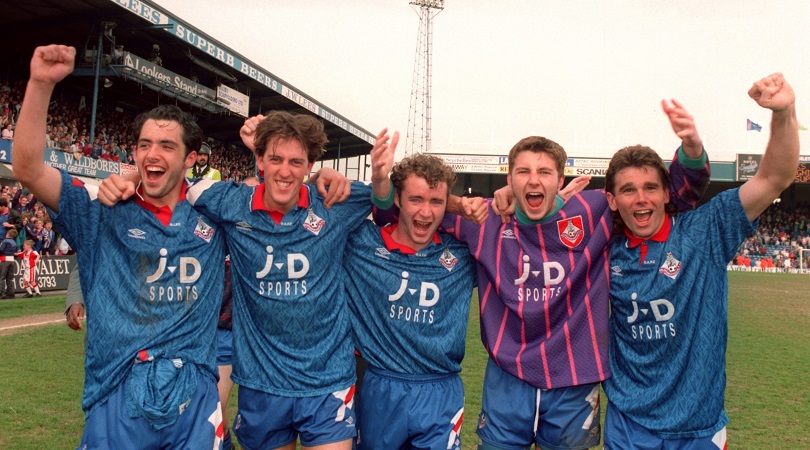
Points: 89 (from 84 games), Seasons: 2, Goal difference: -37
A Premier League original that lasted just two seasons – but Oldham did get in a miracle escape in 1992/93, when they won their last three games to stay up on goal difference ahead of Crystal Palace.
The Latics went down the following year, although they gave it a good go and only finished three points short of safety. Oldham currently reside in League Two, finishing a lowly 19th in the curtailed 2019/20 campaign.
42. Reading
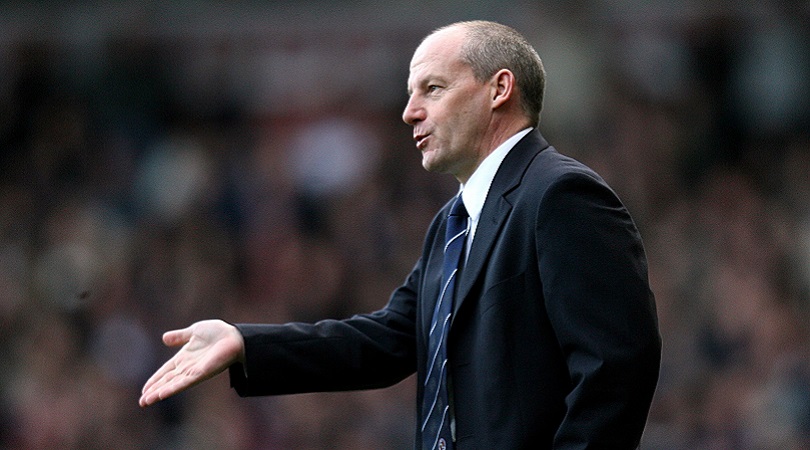
Points: 119 (from 114 games), Seasons: 3, Goal difference: -50
After gaining a record 106 points in the Championship in 2005/06, Reading carried their momentum into the Premier League and secured an 8th-place finish under Steve Coppell. The Royals amassed 55 points that campaign, which is almost half their overall Premier League tally.
Things didn’t go quite so well in either 2007/08 or 2012/13, when Reading managed a combined 16 wins and were duly sent back to the Championship on both occasions.
41. Hull
Points: 171 (from 190 games), Seasons: 5, Goal difference: -142
Recent risers, in that all of Hull’s Premier League seasons have come since 2008, but they haven’t quite got the knack of it yet: they’re yet to break the 40-point barrier in five attempts (explaining the three relegations).
Conceding 323 goals while scoring a less-than-one-a-game 181 hasn’t exactly boosted their survival prospects. Hull did once flirt with a top-half finish, only for their form to collapse in the second half of 2008/09 when Phil Brown started to think he was the second coming of Alex Ferguson.
40. Sheffield United

Points: 209 (from 198 games), Seasons: 5, Goal difference: -83
Sheffield United returned to the Premier League in style in 2019/20, securing an improbable 9th-place finish and spending much of the season flirting with European qualification.
That was the first time United had finished in the top half of the Premier League, having previously ended up 14th, 20th and 18th.
But it all went horribly wrong the following year, when the Blades finished rock bottom with just 23 points, and they were denied a bounce straight back up when they lost the Championship play-off semi-final on penalties to Nottingham Forest.
39. Brighton
Points: 209 (from 190 games), Seasons: 5, Goal difference: -68
After steadily averaging around a point per game for their first four seasons in the Premier League, Brighton took it up a notch in 2021/22.
The Seagulls enjoyed their best-ever campaign under Graham Potter, clinching their first top-half finish by coming in ninth, and blowing their previous points record of 41 out of the water by finishing with 51 points.
38. Bournemouth
Points: 211 (from 190 games), Seasons: 5, Goal difference: -89
Bournemouth suffered final-day heartache this season, going down despite a 3-1 victory over Everton. The Cherries should be proud of their five-year top-flight stay, though – it would have been an unfathomable prospect when Eddie Howe first took charge of a club that had recently been deducted 17 points in League Two back in 2008/09.
Bournemouth were always worth watching, and their 190 Premier League matches produced 571 goals – an average of more than three per game.
37. Ipswich
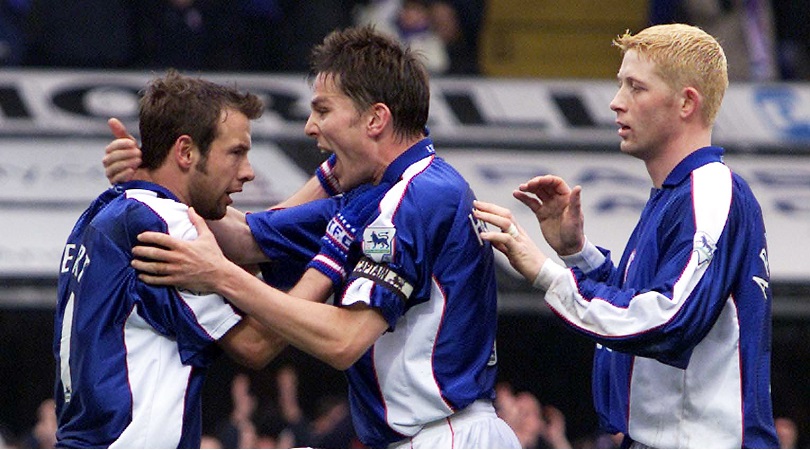
Points: 224 (from 202 games), Seasons: 5, Goal difference: -93
Ipswich’s best season came in 2000/01, when the Tractor Boys finished 5th and Marcus Stewart scored 19 goals. They were relegated in 2002 and liked the second tier so much they bought it, staying for 17 consecutive seasons and finishing in the bottom half in most of them.
They finally escaped the Championship in 2018/19 – but it was by falling through the trapdoor rather than climbing up the ladder. A 225th Premier League point seems a long way off right now.
36. Nottingham Forest
Points: 239 (from 198 games), Seasons: 5, Goal difference: -58
Forest finished as high as third in 1994/95 – splitting Manchester United and Liverpool, as Stan Collymore bagged 22 league goals. That explains why they top the mini league of clubs who’ve played five or fewer Premier League seasons, but the club haven’t featured in the top flight this millennium.
Brian Clough contributed 40 of their 239 points in the inaugural Premier League season of 1992/93, which turned out to be Ol’ Big ‘Ead’s last in management.
35. Derby
Points: 274 (from 266 games), Seasons: 7, Goal difference: -149
It says seven seasons, but should Derby’s 11-point effort in 2007/08 really count? The Rams were utterly dismal that year, winning only one game (Newcastle couldn’t even avoid defeat by the worst team in Premier League history) and scoring just 20 goals.
Happier memories are Jim Smith’s entertaining mid-'90s side that finished 8th and 9th, spearheaded by Dean Sturridge (Derby’s record Premier League goalscorer with 31) and Paulo Wanchope (joint-second with 23).
34. Watford
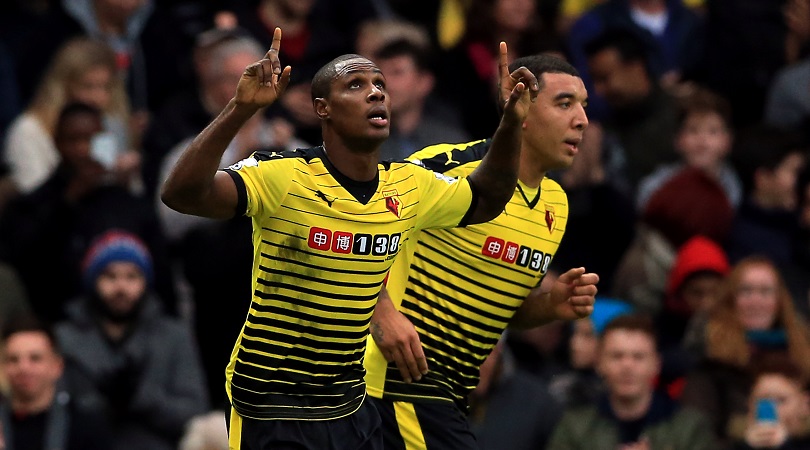
Points: 285 (from 304 games), Seasons: 8, Goal difference: -208
Gino Pozzo’s trigger-happy approach to running a football club means Watford have had almost as many Premier League managers as they have points.
Still, the Pozzo family have clearly done something right during their ownership of the Hertfordshire (not London) outfit. Before their takeover in 2012, both of Watford’s two previous Premier League appearances had seen them finish bottom.
Ok, they may have finished second-bottom in 2021/22, but between 2015 and 2020 the Hornets at least had a run of five consecutive top-flight campaigns.
33. Portsmouth
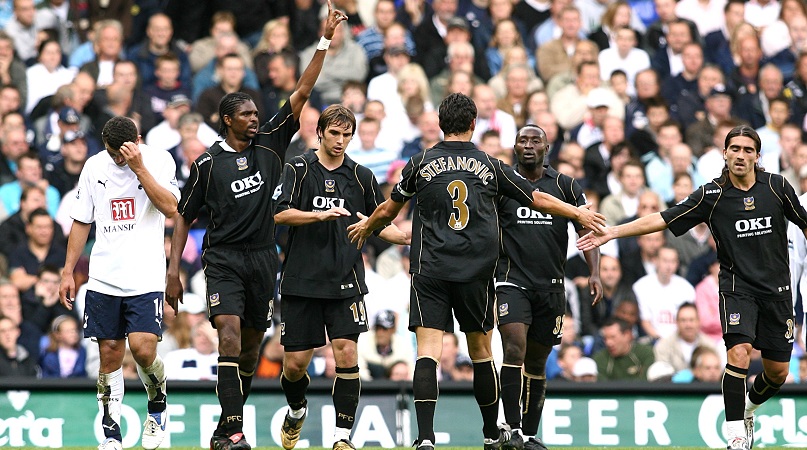
Points: 293 (from 266 games), Seasons: 7, Goal difference: -88
Portsmouth did their Premier League seasons in one stint, then went into a tailspin post-relegation. All three of their top Premier League scorers are from Africa: Nigerians Yakubu (29) and Nwankwo Kanu (17), split by Congolese Lomana LuaLua (19). We assume this means Portsmouth are huge in Africa and 400x more popular than Manchester United.
Pompey’s tumble down the divisions came amid a string of disastrous owners, but the club is now a sounder financial footing and will hope to break the 300-point mark in the coming years.
32. Birmingham
Points: 301 (from 266 games), Seasons: 7, Goal difference: -87
All seven of Birmingham’s Premier League appearances came in a nine-year spell between 2002/03 and 2010/11. They drew 82 of their matches – a whopping 31% – so would be better served by campaigning for two points for a win. Or one point. Or zero points. Revolutionary.
The Blues lost in the Championship play-offs in 2011/12 but haven’t come close to climbing back into the top flight since then. Wolves could overtake them to become the west Midlands third-most successful Premier League team next term.
31. QPR

Points: 308 (from 278 games), Seasons: 7, Goal difference: -92
Very few clubs who’ve played fewer than 10 seasons in the Premier League can boast a player who’s scored a half century of goals. QPR can: Sir Les Ferdinand bagged 60 (in 110 appearances) – 20 of which came in the first Prem season, when the Rs finished 5th.
That was an excellent accomplishment for Rangers, who would secure another couple of top-half finishes over the next two seasons before relegation in 1996. They’ve spent three seasons in the Premier League since then but have never finished above 17th.
30. Swansea
Points: 312 (from 266 games), Seasons: 7, Goal difference: -77
Swansea’s Premier League debut ended in a 4-0 defeat by a Sergio Aguero-inspired Manchester City, but Brendan Rodgers’ side dominated possession in the first half of that encounter at the Etihad in 2011. That would be template for most of Swansea’s stay in the Premier League, which peaked with an 8th-place finish under Garry Monk in 2014/15.
But the Swans gradually lost their identity and slipped back into the Championship in 2018. Still, seven unbroken seasons in the Premier League was more than most expected when they first came up.
29. Burnley
Points: 325 (from 304 games), Seasons: 8 Goal difference: -155
The Clarets made their Premier League bow in 2009/10 but finished 18th and found themselves back in the Championship a few months later. The same happened in 2014/15, but Sean Dyche steered Burnley back into the top flight at the first time of asking.
A period of consolidation followed until 2021/22, when Dyche was dismissed and the Clarets suffered a final-day relegation.
28. Wigan
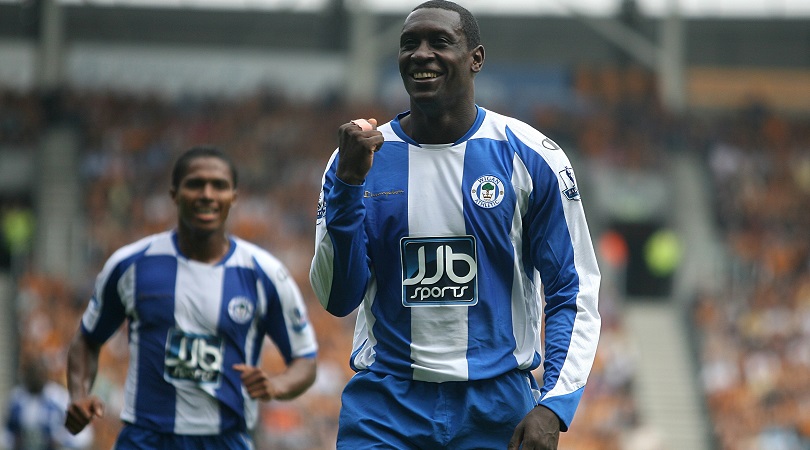
Points: 331 (from 304 games), Seasons: 8, Goal difference: -166
Widely tipped as a one-season wonder (sage Mark Lawrenson didn’t predict them to win any of their 38 top-flight games in 2005/06; they finished 10th), but Wigan clung on for eight years. A woeful goal difference tells that it wasn’t always easy - but the FA Cup eased the sting of relegation in 2013.
They were cruelly relegated to League One in 2019/20 after being forced into administration. These are worrying times for Wigan fans, but for a while they were one of the Premier League’s most entertaining underdogs.
27. Wolves
Points: 348 (from 304 games), Seasons: 8, Goal difference: -134
Wolves’ ambitions have changed somewhat since they returned to the top-flight four years ago backed by Fosun International.
The Molineux outfit immediately secured back-to-back seventh-place finishes to reach the Europa League, but the last two years have seen them drop into mid-table.
26. Charlton
Points: 361 (from 304 games), Seasons: 8, Goal difference: -100
Charlton serve as an example of how quickly things can change for a mid-table Premier League club. Under the astute management of Alan Curbishley, the Addicks spent six seasons in the top flight, comfortably avoiding a relegation battle throughout and even finishing seventh in 2003/04.
Then, Charlton decided to move on from Curbs in 2006, which led to a season of eight wins, three managers and relegation. They’ve not been back to the top flight since and were relegated to League One this term.
25. Wimbledon
Points: 391 (from 316 games), Seasons: 8, Goal difference: -88
A non-league club as late as the 1977, Wimbledon climbed all the way to the top flight in less than a decade. They ended the inaugural Premier League campaign in 12th place, then finished the 1993/94 season in 6th – a tremendous achievement for a club of their size.
The south Londoners remained part of the top-flight furniture until relegation in 1999/00, which came after they’d flirted with the drop in each of the previous two seasons. Wimbledon were then controversially relocated to Milton Keynes in 2003/04, yet the original Dons remain 24th in the all-time Premier League rankings.
24. Sheffield Wednesday
Points: 392 (from 316 games), Seasons: 8, Goal difference: -44
Two 7th-place finishes in the first two years of the Premier League were achieved by a wonderfully stylish side which starred Chris Waddle, Mark Bright and David Hirst. Unfortunately for Wednesday, that was as good as it got in the Premier League era: four bottom-half finishes followed in the next five seasons, before the Owls suffered relegation in 2000.
Wednesday were backed to secure a quick return to the top flight, but they still haven’t been back 20 years on and even spent two seasons in League One.
23. Norwich

Points: 402 (from 392 games), Seasons: 10, Goal difference: -255
Norwich are perhaps the yo-yoiest of the all the yo-yo clubs, with four of their six spells in the Premier League having consisted of a solitary season. The exceptions were between 1992 and 1995, when the Canaries even mustered a surprise title challenge, and between 2011 and 2014.
The majority of their 402 Premier League points came in those two periods, with this season’s rock-bottom side contributing just 22.
22. Coventry
Points: 409 (from 354 games), Seasons: 9, Goal difference: -103
It's remarkable that, until 2016/17 when Stoke and West Brom slipped past them, Coventry still clung onto a top 20 spot in this table. They’ve been outside the top tier since relegation in 2000/01, although City were ever-present in the Premier League before that.
Currently on 99 Premier League wins, the Sky Blues took a step closer to reaching the century-mark with promotion to the Championship in 2019/20. Anyone got Gary McAllister’s number?
21. Stoke
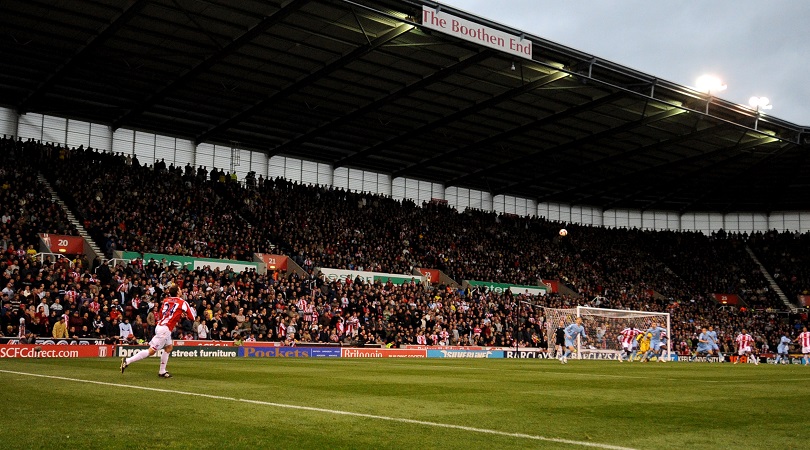
Points: 457 (from 380 games), Seasons: 10, Goal difference: -127
Stoke's haul of only 398 goals in their 380 games – while conceding a still relatively miserly 525 – tells you they haven’t exactly been Kevin Keegan’s Newcastle in the entertainment stakes.
Still, the Potters were only knocked out of the all-time top 20 this season, and they would have gladly taken that when they were languishing in the third tier at the turn of the millennium. A 15th-place finish in the Championship in 2019/20 shows there’s work to be done if the Potters are to climb back into the top flight any time soon.
20. West Brom
Points: 490 (from 494 games), Seasons: 13, Goal difference: -262
Boing-boing indeed. The Baggies bounced up and down with gusto after they were first promoted to the Premier League in 2002, with three relegations and three promotions in the following eight seasons.
After 2011, West Brom finally sat still for a while – until relegation struck in 2018, and again in 2021 after one season back up in the big time.
The stats aren’t all pretty. Of all the 49 clubs to have appeared in the Prem, only one has a worse goal difference than West Brom’s -262.
19. Crystal Palace
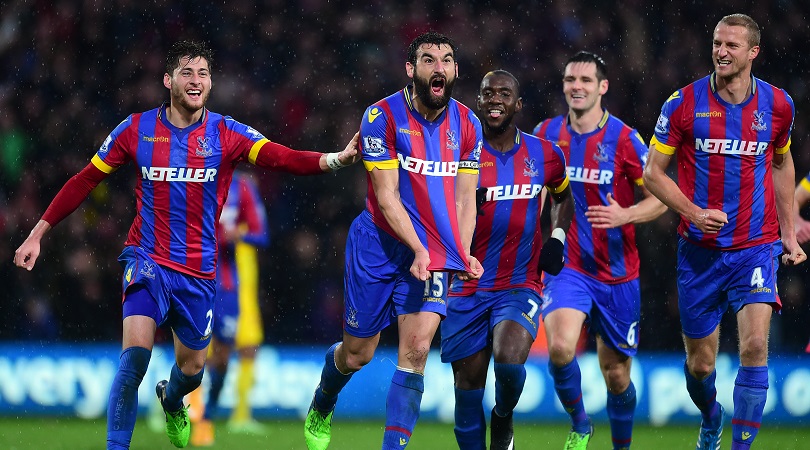
Points: 564 (from 502 games), Seasons: 13, Goal difference: -179
These might not feel like glory days for Crystal Palace fans, but the Eagles have never had it so good in terms of unbroken top-flight participation. Palace have now been in the Premier League for nine successive seasons, helping them slide comfortably into the top 20.
Only one of their 11 campaigns in the division has ended with a top-half finish, achieved by Alan Pardew in 2014/15, but Patrick Vieira was close in his debut season, finishing 12th and three points from 10th.
18. Bolton
Points: 575 (from 494 games), Seasons: 13, Goal difference: -170
Nowt surprising about Bolton - Premier League stalwarts for 11 consecutive seasons from 2001 to 2012 – earning enough points to sit in the Premier League elite. Especially as the club finished as high as 6th in 2005, when Big Sam’s steady, fleshy hand was on the tiller.
What’s surprising is that we recall Bolton as an obdurate, defensive unit. Stats tell a different tale. They’ve conceded 745 goals - the most by far of any club that's played under 500 Premier League games.
17. Sunderland
Points: 618 (from 608 games), Seasons: 16, Goal difference: -292
By a distance the worst goal difference of any Premier League side, thanks in large part to their dire campaigns of 2002/03 and 2005/06, when the Black Cats won a combined seven games, lost 56 and accumulated 34 points, a tally that would probably have sent them down in a single season.
From 608 Premier League games, they’ve won just 153 – but approximately 130 of those have been wins against arch-rivals Newcastle, so it probably feels like more. Now mired in the third tier and again facing ownership uncertainty, a record fifth Premier League promotion must seem a long way off.
16. Fulham
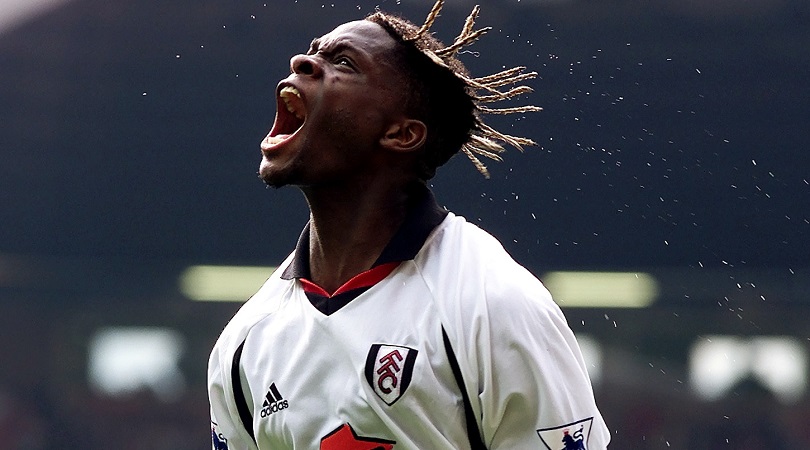
Points: 640 (from 570 games), Seasons: 15, Goal difference: -200
Fulham were languishing in the fourth tier of English football in the mid-90s, so their Mohamed Al-Fayed-funded charge up the divisions to the Premier League in 2001/02 was a dizzying climb. It also explains why most fans tolerated the owner’s, erm, odd statue-related eccentricity.
Fulham liked the top tier so much they stayed for an impressive 13 consecutive seasons (no club outside the top 10 in this table has had a longer unbroken run).
Relegation struck in 2014, then again in 2019...then AGAIN in 2021, but the Cottagers will be back for another crack next season after winning the Championship.
15. Middlesbrough
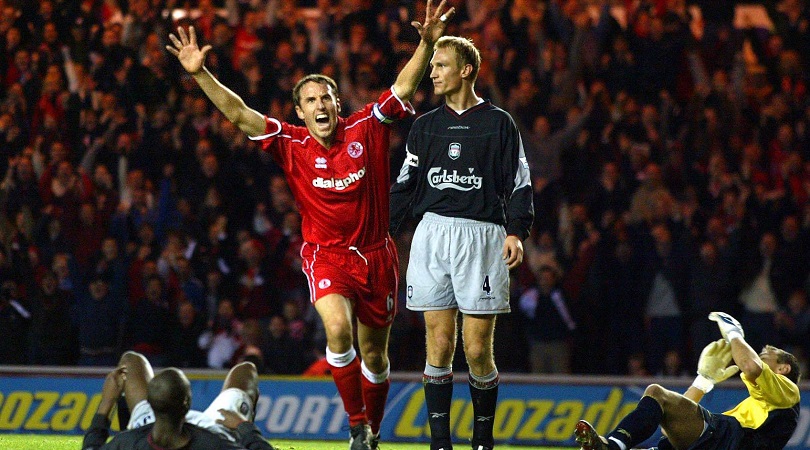
Points: 661 (from 574 games), Seasons: 15, Goal difference: -146
Boro were one of the Premier League’s original 22 in 1992/93, but finished 21st and suffered relegation in that first season. Second-bottom is a spot they enjoy so much they’ve finished there four times (i.e. every time they’ve been relegated).
Yet it’s not all bad: around that, they had an 11-year unbroken spell between 1998 and 2009 – and finished as a high as seventh under Steve McClaren in 2005 – which explains their comfy position in lower mid-table here. Ranking above Sunderland despite having played 34 fewer games will certainly go down well on Teeside.
14. Leicester
Points: 787 (from 612 games), Seasons: 16, Goal difference: -48
The lowest-placed team to have actually won the Premier League . Which, to be fair, most Foxes fans would likely have taken seven years ago if you’d offered it to them. Possibly with the words: “Yeah, fair enough, the lowest place team to… sorry, come again?”
Leicester arrived in the Premier League in 1994 under Brian Little's stewardship, and immediately went back down. It was Martin O'Neill who later led them to four consecutive top-10 finishes, and things went a bit haywire after he left in 2000: Leicester finished bottom in 2002, made a one-season appearance in 2003/04, then briefly dipped down to the third tier in 2008/09, before returning in 2014 to pull off a great escape and then a title win. A perfectly normal narrative.
13. Leeds
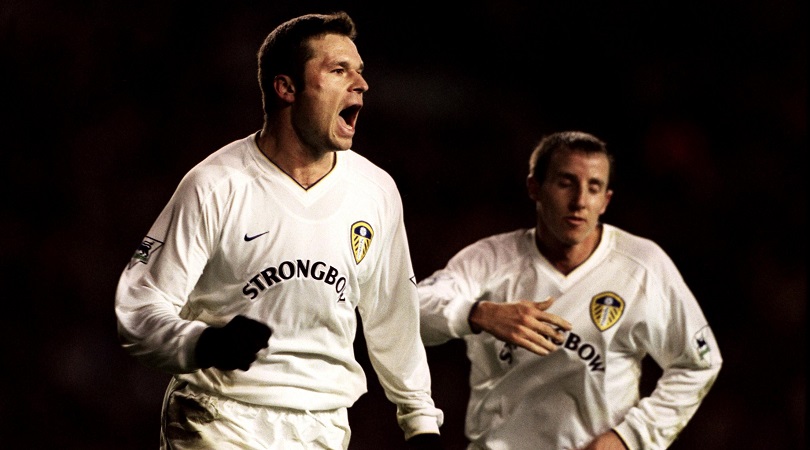
Points: 789 (from 544 games), Seasons: 14, Goal difference: +39
It’s pretty impressive that Leeds are 13th in the all-time standings when you consider they only recently secured a return to the Premier League after a 16-year absence. Their 789 points have been amassed over the course of just 14 seasons, giving them a respectable average tally of 56 per campaign.
The last title winners of the First Division era, Leeds came closest to topping the Premier League pile in 1999/00, when they sat at the summit of the standings in late January before fading away and finishing third.
12. Blackburn
Points: 970 (from 696 games), Seasons: 18, Goal difference: +20
After just three Premier League seasons, Blackburn sat second in this overall table having finished 4th, 2nd and – in 1995 – 1st. Yet without former owner Jack Walker’s leadership (and crisp banknotes), the club has slipped out of the all-time top 10 - being supplanted by West Ham in 2016/17 and Southampton in 2019/20.
The ownership of Venky’s has, we’re going to boldly state, been less popular than that of Walker’s – what with them guiding the club out of the Premier League and into the third tier. Promotion in 2017/18 at least put Rovers back into the Championship and within sight of the 30 Premier League points they need to reach the 1,000 mark.
11. Southampton
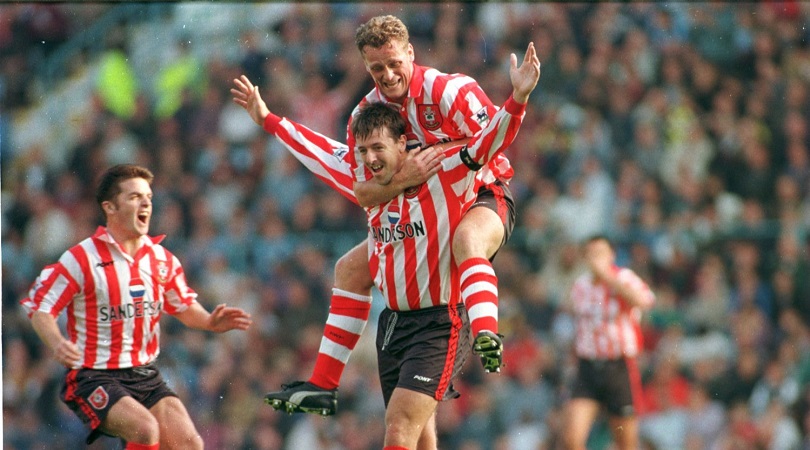
Points: 1,063 (from 886 games), Seasons: 23, Goal difference: -204
Southampton should have 11th spot on lockdown for a good few years after passing the 1,000 point mark the season before last.
Saints do sit fifth on the list of most Premier League defeats with 371 - but that’s a legacy of having been present for 23 of 30 seasons.
Those seven seasons away from the Premier League saw Southampton dip briefly into the third tier, but they’ve now had a seat at the top table since 2012, during which time they’ve finished in the top eight four times.
10. West Ham
Points: 1,258 (from 996 games), Seasons: 26, Goal difference: -194
West Ham’s fans joy at besting Tottenham at the end of 2016/17 wasn’t gloating in effectively ending their fellow London club’s title bid (perish the thought!) but rather in pushing past the Premier League’s 1,000 points total. Naturally.
They have since boosted up to 1,258 points after two excellent seasons under David Moyes, who led them into Europe on both occasions.
The Hammers are comfortably in the all-time top 10, but it hasn’t been entirely smooth sailing post-1992 – they’ve been relegated twice and flirted with the drop on several other occasions, although they did finish as high as 5th under Harry Redknapp in 1999.
9. Aston Villa

Points: 1,358 (from 1,038 games), Seasons: 27, Goal difference: -88
Aston Villa had been Premier League ever-presents until their dismal relegation in 2016. Three seasons in the Championship followed, and the club looked to be heading back there until a late-season surge allowed them to secure survival on the final day of the 2019/20 campaign.
Villa haven't quite got back to the, er, ‘glory’ days of Brian Little, John Gregory and Martin O’Neill, but they've at least consolidated their status over the last couple of seasons with mid-table finishes.
8. Newcastle
Points: 1,410 (from 1,034 games), Seasons: 27, Goal difference: -40
Proof that this table can be misleading. To see Newcastle in eighth and 300+ points above 11th – it looks like a comfortable Premier League existence.
Yet there’s been a general descent in the second half of this club’s Prem’s existence. During the first 14 years, Newcastle finished 2nd twice (under Kevin Keegan and Kenny Dalglish), then had three top-five finishes (under Bobby Robson).
The last 14 years has yielded two relegations and just one top-five finish (in 2012). Could that be about to change under their new Saudi owners?
7. Everton
Points: 1,574 (from 1,152 games), Seasons: 30, Goal difference: +10
The first ever-present club on this list, The Toffees might hold the record for Premier League draws (320) and defeats (414), but that’s mainly because they’ve been in the division for 30 consecutive seasons.
Everton spent the early Premier League years battling relegation and pulling off a miracle escapes - not unlike the chaotic campaign just finished.
6. Manchester City

Points: 1,629 (from 962 games), Seasons: 25, Goal difference: +590
Predictably, our fastest risers. An abrupt change occurred for Manchester City in 2008 – it was either getting Shaun Wright-Phillips back, or possibly the sudden arrival of all the money in the universe. Who can really say for sure?
Either way, from an also-ran club just inside this top 20 in 2008, City have soared into the top 10 and recently climbed above Everton as Pep Guardiola's band of obscenely talented players clinched back-to-back titles.
No club outside the Premier League's ever-present clubs can boast such a high all-time points total, while City's +590 goal difference is bettered only by the top four clubs on this list. Peptacular stuff.
5. Tottenham

Points: 1,787 (from 1152 games), Seasons: 30, Goal difference: +307
Tottenham Hotspur clinched Champions League qualification this season thanks to the efforts of Antonio Conte after two seasons outside the top four.
But it was thanks mainly to former boss Mauricio Pochettino that Spurs began to trend upwards. The north Londoners didn’t finish inside the top six during the first 13 Premier League seasons; now they’re firmly established among the country’s elite clubs, and even finished second under the former Southampton boss.
The gap to the clubs above them is wide – more than 300 points – but Tottenham are also pulling clear of those below them, with the exception of Man City.
4. Liverpool
Points: 2,109 (from 1152 games), Seasons: 30, Goal difference: +874
Liverpool were relentless between 2018 and 2020, taking 196 points from a possible 228 and this season, after an off-year last term, they racked up another massive points total of 92 despite finishing as runners-up.
They’ve motored clear of Tottenham in the all-time standings as a result, and will now have a place in the top two in their sights.
The Reds have never finished outside the top eight in 30 full seasons and ended up 2nd on three occasions before the long-awaited triumph of 2019/20. Their all-round stats are strong: a win ratio of 53%, 2.021 goals (the second-most in Premier League history) and a 322-point gap on Spurs in fifth.
There’s still work to do, though: Liverpool have won the same number of league titles as Leicester and Blackburn in the last 30 years.
3. Chelsea
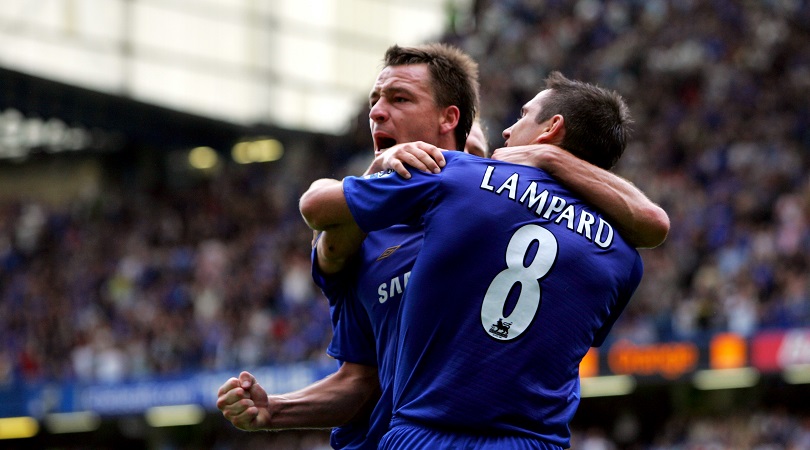
Points: 2,138 (from 1152 games), Seasons: 30, Goal difference: +848
For three of the first four Premier League seasons, Chelsea finished 11th. Still, at least they mixed it up in 1994 (by finishing 14th). Oh.
Yet Chelsea are the team of the second half of the Premier League era. Over the past 16 seasons, they’ve won five Premier League titles – the same number as Manchester United.
Major investment has played a big part. First from lifelong Chelsea fan Matthew Harding, then to an even greater extent from lifelong having-more-money-than-you fan Roman Abramovich. But with the club now set to be sold after the Russian had his assets frozen, its future is shrouded in uncertainty.
The Blues' next goal in the all-time stakes is overtaking Arsenal, which they very nearly did in 2021/22 by cutting the gap to just three points. The battle for capital supremacy is on (sorry, Fulham).
2. Arsenal
Points: 2,141 (from 1152 games), Seasons: 30, Goal difference: +869
You want seconds? Arsenal have more seconds than Augustus Gloop at dinner. Second-most wins (619), second-highest points average (71.37), even the most 2nd-place finishes (six).
That might sound like damning with faint praise, but it really isn’t. Being the second-most successful Premier League club here, only one spot behind the trophy hogs at the top, is an impressive achievement. Especially when you consider Arsenal spent their first five years in the Prem doddering between 12th and 3rd – until Arsene Wenger’s methods kicked in and the club won three Premier League titles in a seven-year span.
The downside to that, of course, is no league titles in the last 18 years and slippage out of the top four for the last six seasons after a strong 20-year run. Still, at least Arsenal are firmly in the top four in this table – 354 points above Spurs in 5th – and this is the table that really matters, right Gunners?
1. Manchester United
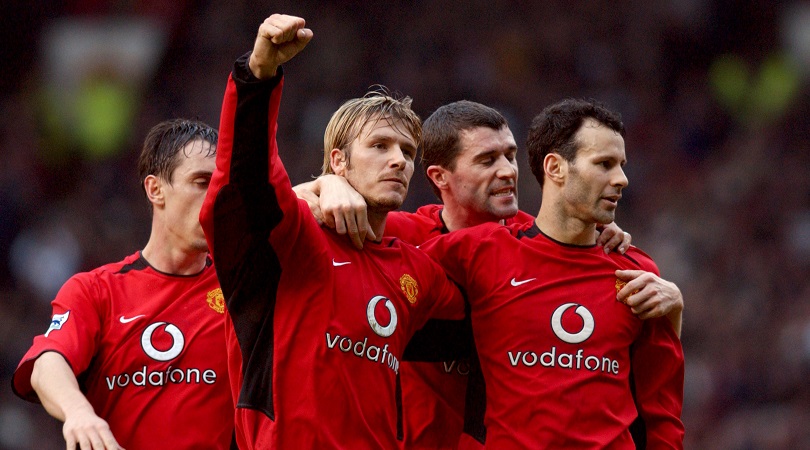
Points: 2,366 (from 1152 games), Seasons: 30, Goal difference: +1,119
Try to conceal your surprised face. Yep, the team that's won almost half of all Premier League titles (13) sit atop this table with a 225-point lead. Thing is, we don’t remember David Moyes, Louis van Gaal, Jose Mourinho, Ole Gunnar Solskjaer or Ralf Rangnick doing that well, so the bloke before must have been some kind of title-winning emperor.
Critics might point out the fact that United have regularly been the biggest spenders of the Premier League era – and oh, look, they’re top of this table. But it’s to Alex Ferguson’s credit that even when Chelsea and Manchester City began waving bigger wads of cash around, he still came back and picked up league titles with the casual insouciance of a man going down to the shop for a pint of milk. (If that man was also really angry about milk, for some reason.)
Things have gone sharply downhill since the great man’s retirement in 2013, and this season’s haul of 58 points was United's lowest of the Premier League era. But for now at least, United’s lead at the top of the all-time ranking is secure.
Greg Lea is a freelance football journalist who's filled in wherever FourFourTwo needs him since 2014. He became a Crystal Palace fan after watching a 1-0 loss to Port Vale in 1998, and once got on the scoresheet in a primary school game against Wilfried Zaha's Whitehorse Manor (an own goal in an 8-0 defeat).
 Join The Club
Join The Club











